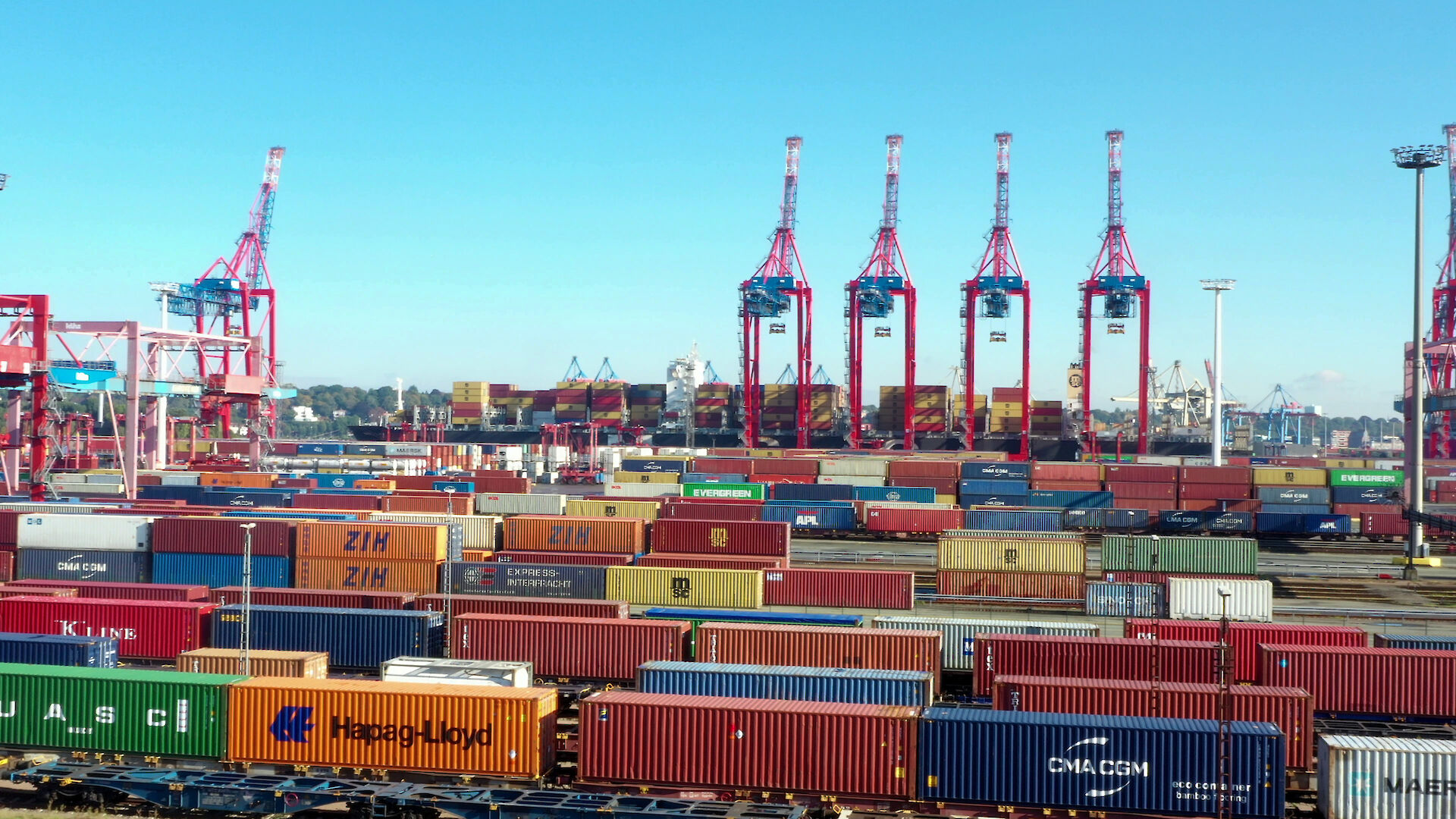

01 Mar 2024 09:25 Hinterland
The German Federal Logistics and Mobility Office (BALM) conducted a comprehensive analysis on the evolution of container transportation by water and rail over an extended period.
According to the findings, rail-based container transport in Germany increased by approximately 85.9% from just under 4.2 million TEUs to around 7.7 million TEUs between 2005 and 2022. The rise was primarily driven by positive developments in the hinterland of the Port of Hamburg. This growth is largely attributed to the rising proportion of rail freight in the overall modal split. Similarly, Bremerhaven experienced an uptick in rail freight's modal share, albeit with a comparatively lower absolute growth in container transportation by rail.
On German inland waterways, container volumes exhibited a gradual increase from approximately 2.1 million TEUs in 2005 to just under 2.6 million TEUs in 2017, before gradually declining to just under 2.0 million TEUs in 2022. The decline began in 2018 due to prolonged periods of low water levels on German rivers, particularly affecting navigation on the Rhine, especially in southern Germany. This, coupled with a notable rise in the cost of inland waterway transport, prompted a shift to alternative modes of transportation. Despite efforts, the volume lost in the hinterland of key seaports like Rotterdam and Antwerp, crucial for inland container transport due to their strategic location, could not always be fully offset by inland waterway transport.
The complete report (in German) is available for free download at www.balm.bund.de.
Positive developments in the Port of Hamburg's Hinterland have driven the growing container transport in Germany.
Federal Logistics and Mobility Office
Phone: +49 221 5776-1120
Phone: +49 221 5776-1121
E-Mail: presse@balm.bund.de